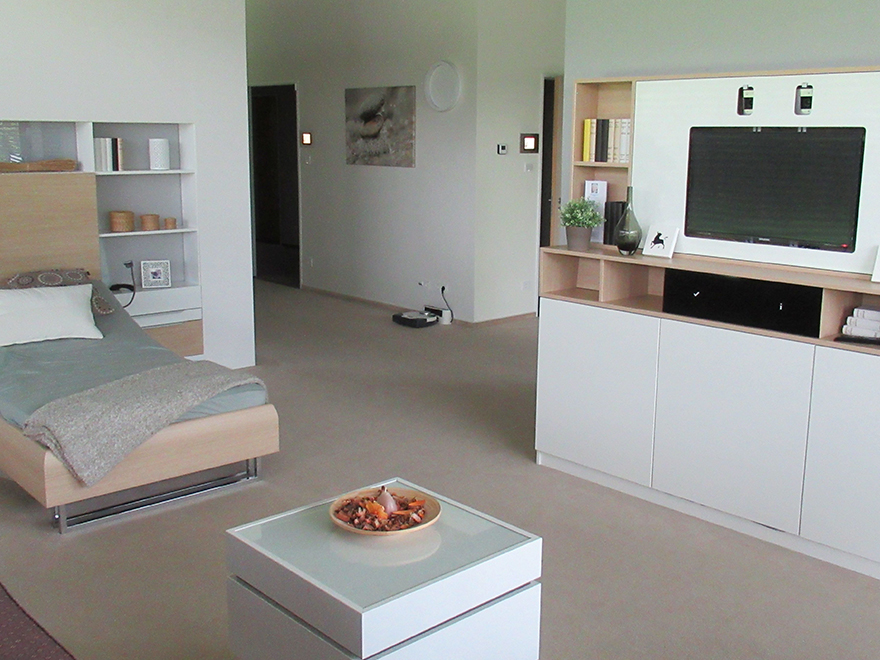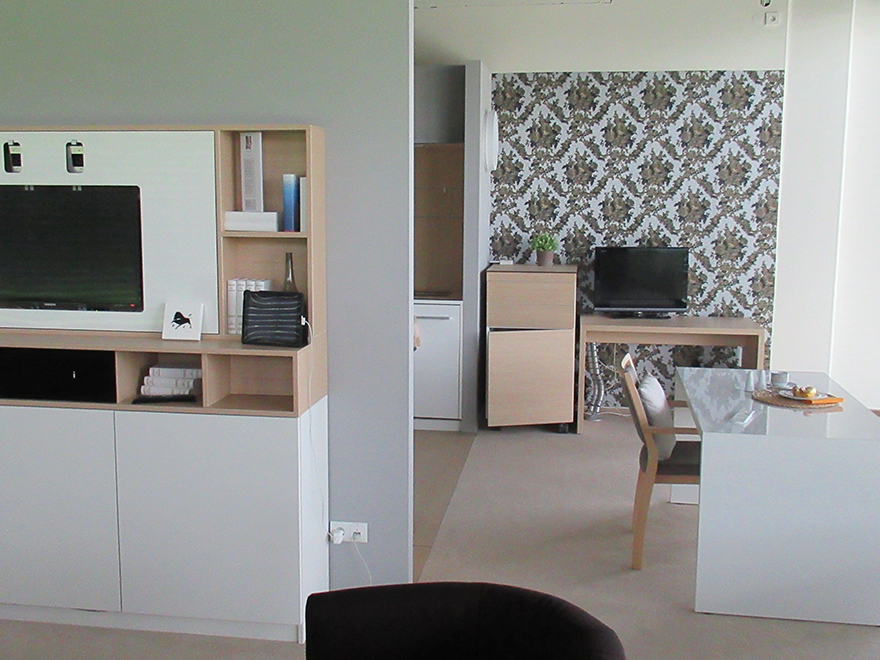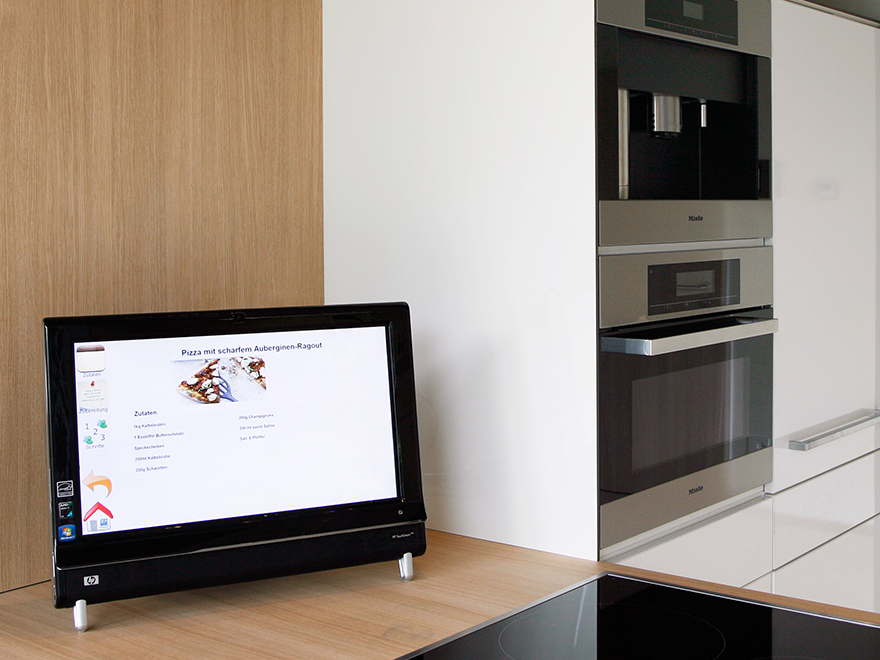Main goal
Through the intelligent digitalization the age-appropriate, technology-assisted living in the quarter should be enabled. Ill, care-dependent/needy people, disabled and seniors could stay in their own quarter socially integrated and as long as possible due to prevention, household-related care and networked value chains. This is according to their personal wishes and also reduces the care and social subsequent costs for health insurance funds, church carriers and municipalities.
Intelligent data aggregation and usage for innovative features is needed in age-appropriate, technology-assisted living in the quarter. The project wants to show the following: Today, sensors in the home environment are almost exclusively used for the alerting and a snapshot – the chance to cause proactive changes is yet not even used. It will be shown, that technology does not need to be cold and inhuman – on the contrary – it allows people to live longer autonomously.





